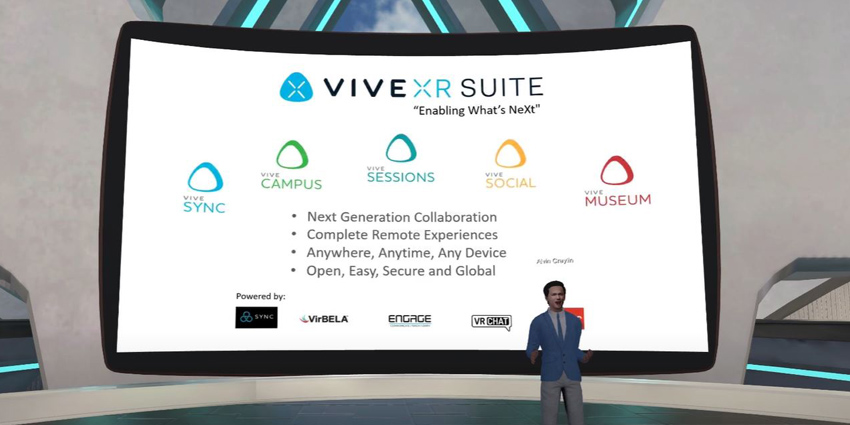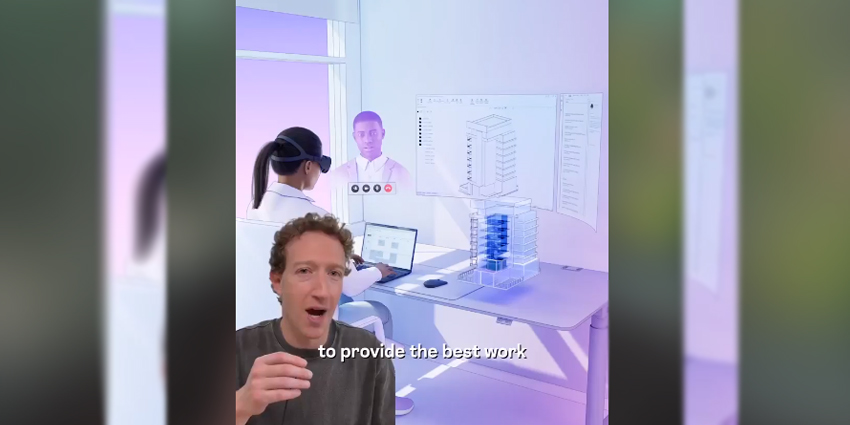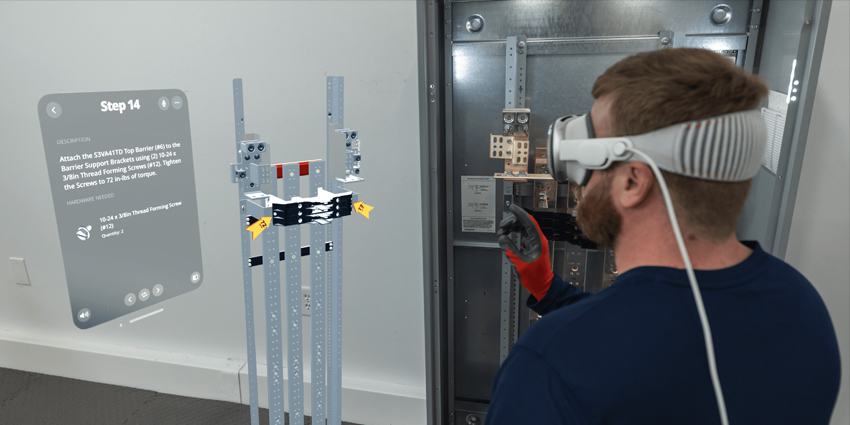Extended reality (XR) gives groups a shared platform across devices, presenting a world where anyone can join in and collaborate.
Attention is often directed towards augmented reality (AR) and virtual reality (VR) markets, but over time, the XR market is expected to grow as the emerging technology becomes more accessible.
But XR should not be confused with mixed reality (MR), which brings the real and virtual worlds together to display physical and digital objects in real-time.
XR refers to the fusion of hardware and software to create shared digital spaces accessed via connected platforms, such as Spatial 3.0, where people can meet in a virtual shared space via a headset or a phone.
Solutions such as Spatial 3.0 show how MR technology can bring people together, even without access to a special headset.
XR faces a lack of wider support, but this looks to change as interest in XR expands beyond enthusiasts.
HTC Vive’s XR Suite aims to provide a platform for collaborative VR/XR applications to immerse employees into a shared workplace.
Vive for Enterprise
Originally announced at HTC’s ‘Journey into the Next Normal‘ event in November last year, HTC presenters explained what is in store for businesses.
Users can sign up for an account to access multiple apps across desktops, mobiles, and VR headsets, providing the platform with a potentially massive user base.
VR/XR technologies and the metaverse may seem inaccessible for first-time users, but this is far from the case.
AR is used daily on social media platforms such as Instagram and Snapchat, and brands have widely identified AR as a proven way to connect audiences with advertising campaigns.
Shared metaverses are incredibly popular at the moment and key examples in gaming platforms such as Fortnite and Roblox, translating this into an enterprise space is key to the future of collaboration.
Alvin W. Graylin, China President of HTC, said during HTC’s 2020 announcement XR should be a “democratised technology.”
What is Available with XR Suite
The XR Suite platform is also giving users additional tools to get the best out of remote collaboration.
Campus: VirBELA Open Campus are providing exclusive virtual spaces made for XR Suite users. The enterprise-grade virtual space provides options for customisable team suites open to employees and clients at the request of private campuses.
Sessions: Engage VR is a multi-platform educational tool that supports large-scale events and conferences, where enterprises can host events for clients such as presentations and idea pitches. HTC even held its ‘Journey into the Next Normal’ event on the Engage VR platform with great a turn out.
Social: Taking advantage of the incredibly popular VRChat software, Vive Social offers a creative space for employees to kick back and relax with a wide array of customisable options employees can use to express themselves compared to outside the virtual world.
Sync: Running on HTC’s in-house software, Vive Sync offers ‘enterprise level collaboration‘ with a realistic look and feel. The software is currently in beta, but users can already book private and secure meeting rooms for clients around the world to meet. Sync Beta gives users a selection of tools to present and share imported documents.
Museum: Vive have always had there finger on the pulse of arts aiming to preserve and democratise art by bringing “experiences to regions that would otherwise not have access,” according to the company’s mission statement.
Curators can find the perfect partner at the Museum of Other Realities (MOR), an art gallery metaverse platform for digital and VR artists providing users access to immersive gallery spaces to present works.
MOR will host the Cannes XR Virtual June 24 to 26, and its platform is set to take on a huge influx of attendees.
Expanding the Metaverse
Investment into XR technology increasingly growing, following news the US Innovation & Competition Act (USICA) has authorised $250 billion for XR research and development to shake up the industry.
Many big firms are picking up on the potential of XR and the metaverse, with US social media leaders Facebook buying digital shared space developers Unit 2 and Big Box.
Metaverses have also seen an increase in interest, due to both the pandemic and the potential value each platform can offer the eCommerce industry.
Originally exclusive to China, the XR Suite has opened up to EMEA, Australia, New Zealand, and Taiwan as of 2021, and a future in borderless offices inches closer each day as developments unfold.







